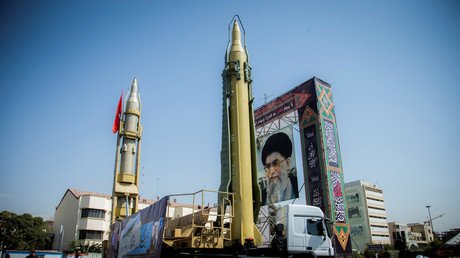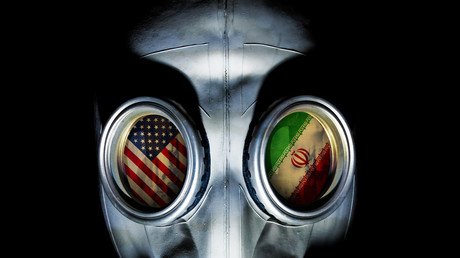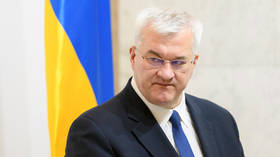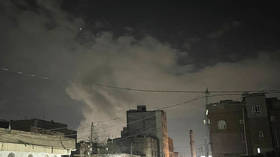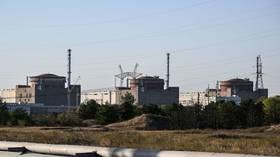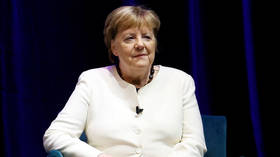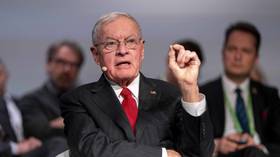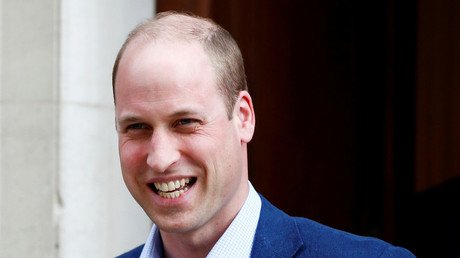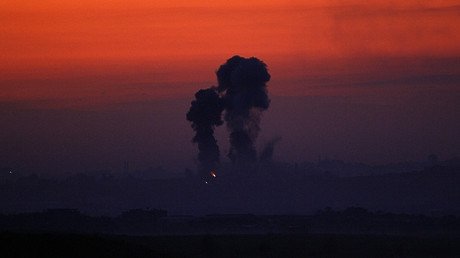‘US isolating itself, while Europe, Russia & Iran are moving closer together’
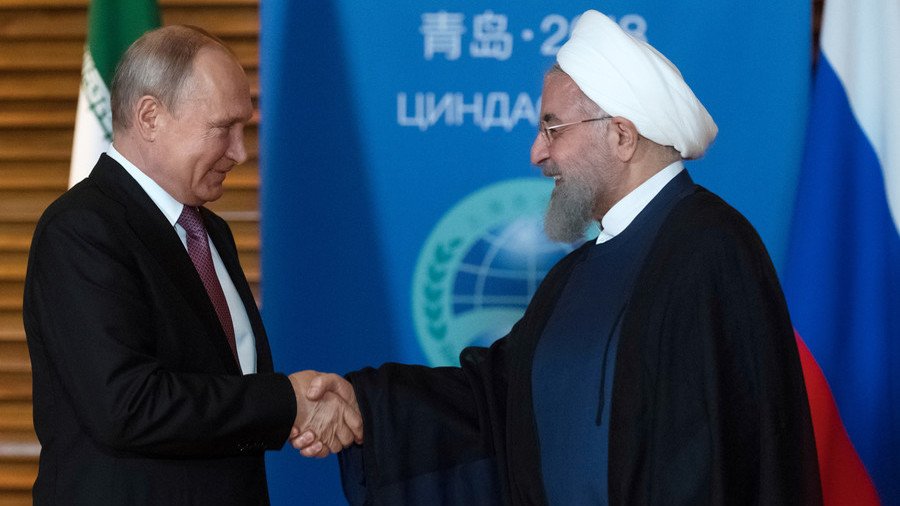
The US is sanctioning so many countries these days that it is going to end up sanctioning itself out of the world economic market, while Europe, Russia and Iran are moving closer together, author Dan Kovalik told RT.
US Secretary of State Mike Pompeo has warned Iran will “face the wrath of the world” if it develops nuclear weapons. Meanwhile the top diplomats of Germany, United Kingdom, Russia and France are scrambling to rebuild the JCPOA nuclear deal which has been left in question ever since the United States pulled out in May.
Russian Foreign Minister Sergey Lavrov spoke on the phone on Monday with Iranian Foreign Minister Javad Zarif and discussed the nuclear deal as well as the upcoming Fifth Caspian Summit.
RT America’s Manila Chan discussed the latest developments over Iran nuclear deal Dan Kovalik, professor of international human rights at the University of Pittsburgh School of Law and the author of the book ‘The plot to attack Iran.’
RT: President Hassan Rouhani of Iran says he is trying his hardest to remain in the JCPOA along with the EU, Great Britain, Germany, China, and Russia. But we know that ultimately, the final decision hangs with the Ayatollah Ali Khamenei. The press in Tehran says his patience is wearing thin. Do you foresee Iran backing out of this in response to America's abrupt withdrawal? And if they do, doesn't this just lead to a nuclear capable Iran even sooner?
Dan Kovalik: I think they will try to keep this agreement intact as long as they can. As you mentioned, Europe is very interested in doing that, Russia is very interested in doing that. But ultimately, look, if the US continues its position to stay out of the deal and continues to pressure Europe as it is to back out of the deal, it may be impossible for Iran to stay in it. But I want to reiterate that Iran has always made it clear that they have no intention of building nuclear weapons, that, to the extent, they do rebuild a nuclear program, it is going to be for energy purposes only.
RT: The last time that you were on the show, we discussed how Iran says they'll resume enriching uranium but within the confines of the JCPOA. Now that the US is looking to re-impose sanctions on Iran, Iran is asking the remaining signatories in Europe to ensure that European businesses conducting business in Iran will not be affected by these new sanctions. Is this a promise that the EU can make?
DK: The problem is that the US is the Big Kahuna, they have a lot of economic power and they have promised to sanction European companies that continue to do business with Iran. So, the EU, I'm sure is sincere in its promise to continue business dealings with Iran but it may be very difficult. And European companies have already started to back away from Iran fearing US sanctions. It is a very difficult situation that both Iran and Europe have been put.
RT: Angela Merkel has openly expressed “great regret” that the US withdrew and said it has “damaged trust in the international order.” Shortly thereafter she had a phone call with Vladimir Putin. Do you see this move as something alienating the US from key allies on how to handle Iran going forward?
DK: Absolutely. I think, as Merkel points out, the US reneged on a deal that Iran was clearly abiding by. The US has shown itself again to be an unreliable partner in negotiations. And I think what you're going to see is Europe, Russia and Iran moving closer together. And yes, the US is basically isolating itself. The US is sanctioning so many countries these days– it is going to end up sanctioning itself out of the world economic market.
RT: The Trump Administration don't seem to be hiding the fact that they want regime change in Iran. But America's sudden harder line against Iran may actually be pushing Iran backwards in terms of normalizing relations with the West. This is giving more fodder to Rouhani's hardline rivals who were anti-democratic. Can you talk about some of these so-called unintended consequences of the US actions against Iran?
DK: A number of commentators, including Noam Chomsky, have pointed out for years that these types of sanctions don't lead to democratization. As you noted, what it tends to do is stiffen the resolve of hardliners in countries like Iran, make it harder for reforms to do work and to liberalize the country. And we saw this, for example, after George W. Bush declared Iran one of the act members of the axis of evil. But this emboldened the so-called hardliners in Iran. So this will not lead to reforms in Iran. It will lead to backward steps in terms of a more liberal country. That is regrettable. But it is predictable. We've seen this time and again.
Think your friends would be interested? Share this story!
